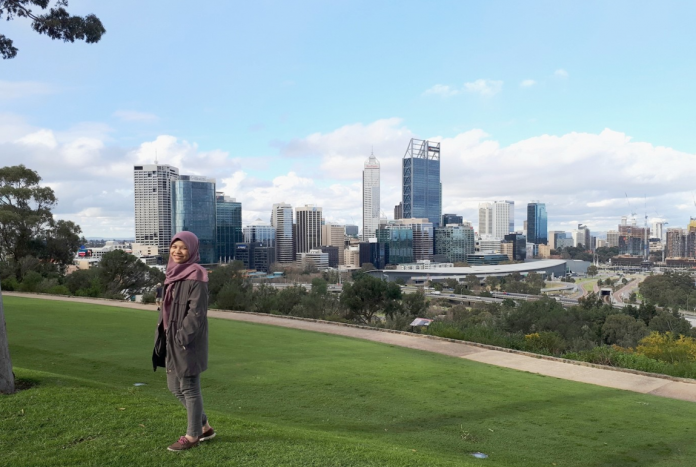“While you are studying abroad, there are various activities beyond the classroom that can become an essential source of learning new experiences and perspectives. One of which is joining a conference or leadership program”
“In this article, Shandy Kurniawati, a Master of Business Information and Logistics Management at The University of Western Australia, shared some lesson learned from her involvement in a leadership program that led her to encourage inclusive practices in her professional activities.”
***
Moving to a new country for a new different life can be daunting. Inevitably, everyone who had an opportunity to move from their home countries would experience culture shock. The same thing happened to me when I moved to Australia in 2018. When I started my postgraduate study at The University of Western Australia, I had to leave my corporate job, meaning I had a new routine that I needed to adapt. Aside from the transition of my daily routine from a corporate worker to a postgraduate student, I was also required to adjust several things, including the western culture.
My biggest culture shock was the learning culture in Australia. The education system in Australia really prepared the students to learn independently. Hence, students must be creative and proactive in finding learning resources.
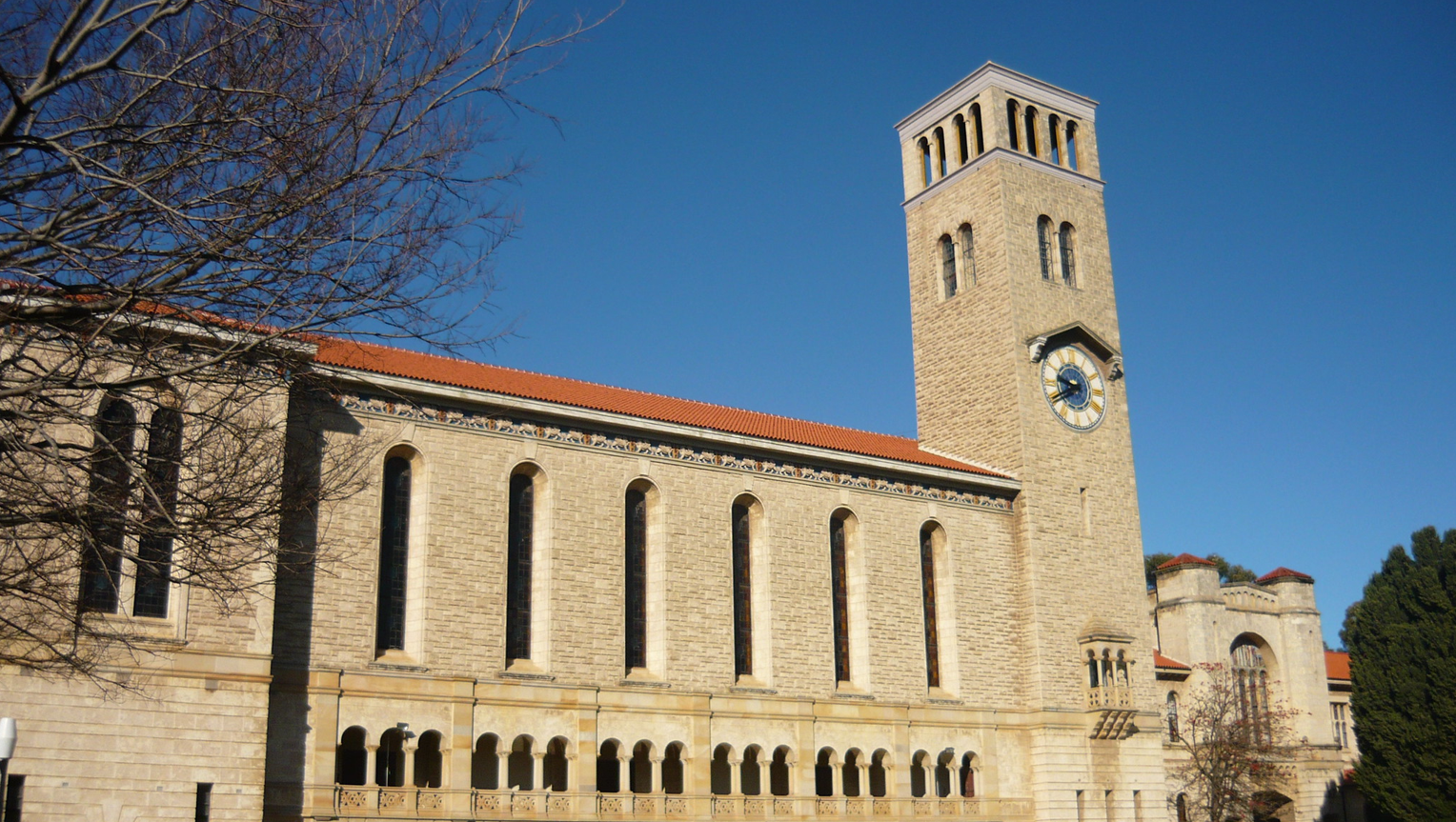
Engaging in activities beyond the classroom
I personally believe that learning resources can also be obtained outside the classroom. While studying overseas was a lifetime opportunity, I wanted to seize this opportunity by engaging in several activities that potentially increased my learning curve.
Joining different activities outside the classroom helped me get broader resources for my learning, as well as gain new experiences and perspectives. More importantly, it helped me build my critical thinking skills since I needed to deal with particular circumstances and different types of people.
In July 2019, I had an opportunity to join The Global Leadership Experience (GLE) program in Australia. It was not a part of my university assignment. Instead, it was a voluntary program opened for every student in Western Australia. I found this program from my professor. Since I had an interest in the topic of leadership and culture, I passionately applied to this program.
An overview of The Global Leadership Experience (GLE)
The GLE by Common Purpose aims to develop the skills and competencies needed to be inclusive leaders. It was a four-day program held for selected students in Western Australia. In order to get a place to join this program, every candidate was assessed based on academic performance and leadership potential. Furthermore, every candidate was required to submit an essay that was evaluated by the Common Purpose Australia’s team. Among 850 essay submissions, gladfully, I was one of the 175 selected students to join the leadership training from Common Purpose Australia.
This leadership program was a life-changing experience. The participants in this program were so diverse in terms of education, professional background, age, religion, and also nationalities. Some of them were students in their bachelor’s, master’s, and doctoral programs. On top of that, the participants were also a mix of Australian and International students. We were then divided into several groups, and every group consisted of 10 people.
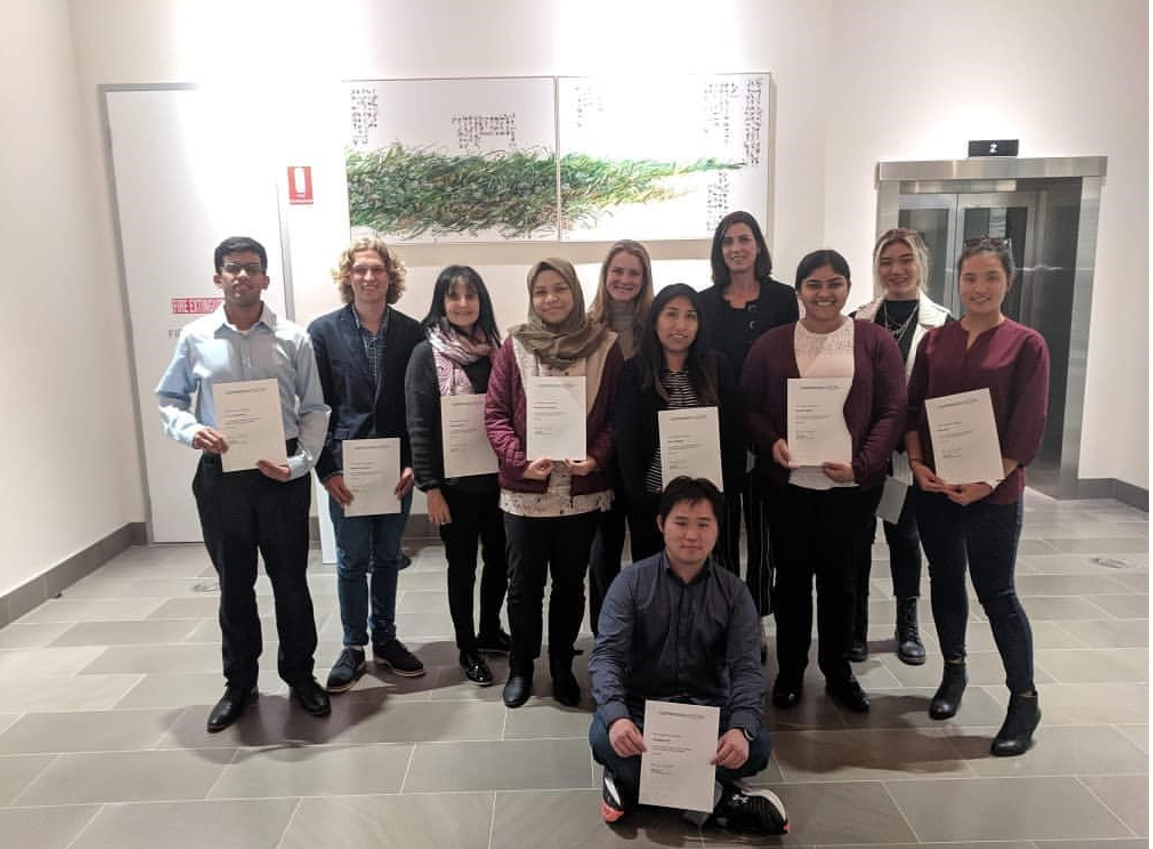
On the first day, all the participants got in-depth material about cultural intelligence through training and group discussion. While I was familiar with Intelligent Quotient (IQ) and Emotional Quotient (EQ) before, Cultural Intelligence (CQ) was a new term for me. Basically, Cultural Intelligence (CQ) is the ability to vary communication and management styles to cross divides – between geographies, generations, sectors, specialization, backgrounds, and beliefs – and thrive in multiple cultures (Common Purpose, 2021).
We also had an immersion visit to several companies, government offices, and start-ups in Western Australia during this program. I had a chance to visit Microsoft Australia and the Australian Government: Department of Infrastructure, Transport, Regional Development, and Communication.
When I had a company visit to Microsoft Australia, I learned how this company really embraced the value of diversity and inclusion in doing their business. For instance, Microsoft Australia encouraged women in Western Australia, in particular, to learn about technology. They even built a community called Women in Technology. In addition, Microsoft Australia supported women employees to become leaders in their firms. Not only that, when they were designing software or games, the design and development teams were very concerned about inclusivity. So that, they designed and developed products that could be used by their customers with special needs.
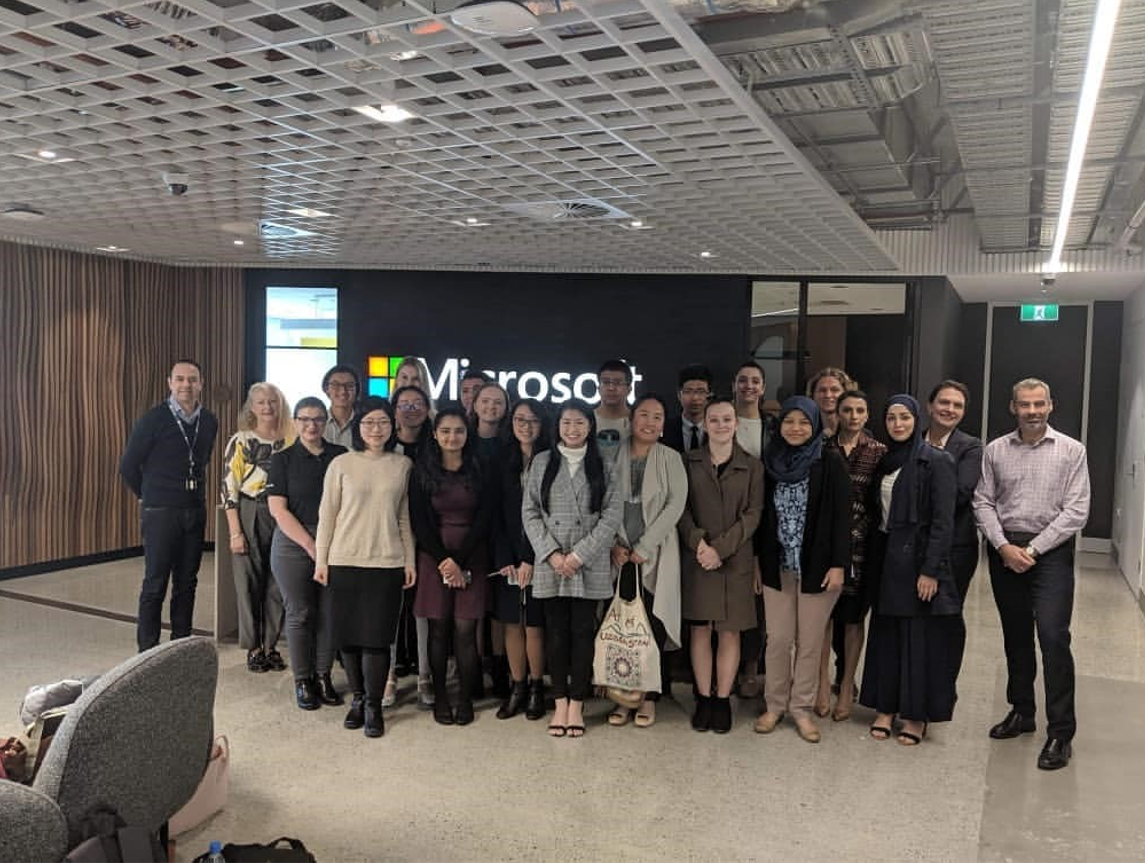
On the next day, I visited the Australian Government office, the Department of Infrastructure, Transport, Regional Development, and Communication. From this company visit, I understood that the Australian Government designed its transportation system to be more inclusive. For example, when they built a sidewalk, they would make sure that the sidewalk was comfortable enough to be used by not only normal people but also people who were using wheelchairs. Moreover, when they designed the roads and transportation systems, they assured that school hours and work hours did not coincide with preventing traffic congestion.
After these immersion visits, every participant came back to the training venue to brainstorm with other members for creating a solution as our final project. We ended this program with our project presentation and networking with fellow participants.
Lesson learned from the GLE experience
Although I joined this program in 2019, the impact still affects me today. Therefore, I want to share three key takeaways from joining this GLE Program to Sahabat Indonesia Mengglobal:
- Cultural intelligence (CQ) does apply in not only social life but also the corporate world.
Looking at how Microsoft Australia and some Australian start-ups run their business to be more inclusive, I realize that cultural intelligence is crucial in a business setting. So that, whenever I design a new digital product or service, I will assure that this product or service can be used and beneficial for as many users as possible. More importantly, nowadays, it is inevitable to do business internationally with internet access at your fingertips. Hence, it is easier for me to adapt to the working culture of my international colleagues.
- Great city is built by propitious public policy
During my visit to the Australian Department of Infrastructure, Transport, Regional Development, and Communication office, I had a group discussion with the representative of the Australian Government and other members of the GLE program. We discussed the essential factors for building infrastructure in Perth, such as the social values, economic costs, and potential challenges. From this discussion, I am cognizant that the Western Australian government designed the public policy carefully. So, it could be more inclusive and be used by as many residents. So, it was not surprising if Perth ranked 6th as the most livable city in the world by the Global Livability Index 2021.
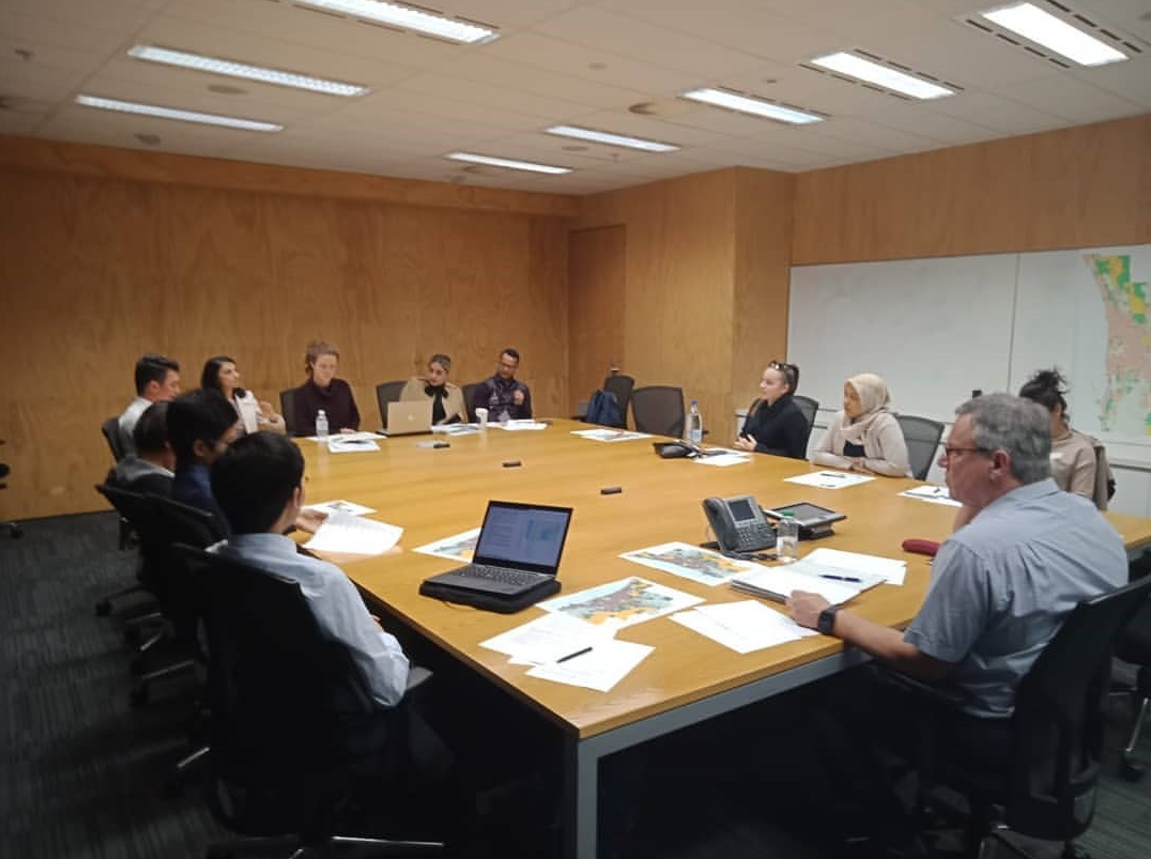
- Diversity boosts creativity
The benefit of working with people from different backgrounds was that it really helped to boost creativity. A professor from Columbia Business School, Katherine Phillips, explained in a research title “How Diversity Makes Us Smarter” that diversity jolts us into cognitive action while homogeneity simply does not. While working on the final project on the last day of this GLE program, our team shared different perspectives about the issue. We put on our experience and knowledge to finish the final project. Even though it took more effort to reach a consensus about the solution we would present, I was amazed that everyone was really creative.
Tips for those wanting to participate in activities beyond the classroom
Being a postgraduate student requires high commitment. However, it does not mean that your learning experience can only happen in the classroom. There are many things to see outside the classroom. So, here are some tips to maximizing your learning experience during your time at university:
- Be curious!
I believe that curiosity, in a good way, can lead to beautiful things. When you are curious about something, do not hesitate to seek information from your surroundings. Share your interest with your professors and friends. You may come up with a new opportunity you have never thought of before.
- Say “Yes” to a new opportunity
When a new opportunity is coming your way, do not be afraid to say yes! You may feel confused at first, but believe me, you will grow and learn something new by trying new things and going out of your comfort zone.
- Energy and time management are the keys
Being a postgraduate student might be exhausting. There will be a lot of study sessions, classes, and group works which may drain your time and energy. Hence, it is imperative to have energy and time management skills. Being good at managing your time means that you are able to eliminate non-essential activities and divert them to join more rewarding activities. In addition, when you are working your energy in the right way, you will have extra energy so you can enjoy more activities outside your classroom.
To conclude, GLE was really an eye-opener experience. I learned a lot about cultural intelligence and built a new friendship with the participants during this four-day program. I also learned how to become a diverse and inclusive leader in today’s world. Since we live in a diverse and multicultural society, I hope that we can pay more attention to the minority and be more inclusive wherever we are.
***
Editor: Yogi Saputra Mahmud









